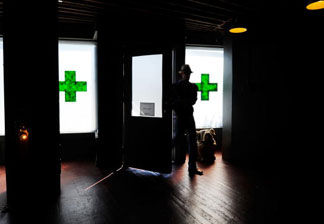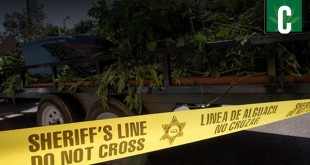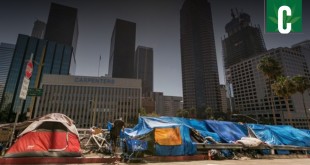Officials in Los Angeles have closed more than 100 medical marijuana dispensaries in the months since the city started regulating the shops, City Attorney Mike Feuer said March 10. Even so, the city may not be keeping pace with new shops opening every day.
Feuer joined Police Chief Charlie Beck at a news conference, where they said the city has not only closed dozens of shops but has defeated legal challenges to the regulations.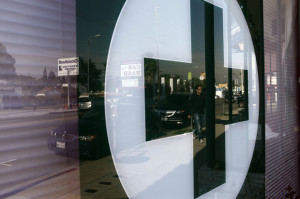
“We have a long way to go, but we have a great start,” Beck said.
The rules, which were approved by voters last May, allow only dispensaries that registered with the city under a 2007 moratorium and subsequent ordinances. The city produced a list of about 130 such shops, but the list doesn’t guarantee any shop is legally protected.
There were hundreds of dispensaries in L.A. at the time the new law went into effect, and city officials have been targeting them ever since. They’ve also been fighting off legal challenges, including a case in which they stopped a shop from opening in Mar Vista.
Feuer has hired two additional prosecutors to handle cases under the new rules. His office also recently published a brochure for the real estate industry, explaining the regulations to landlords.
“We don’t want our Realtor members to get in trouble with the law,” said Mel Wilson of the Southland Regional Association of Realtors. “Nor do we want our clients to be in trouble with the law.”
Police also work to identify illegal shops on their beats, Feuer said.
He said there’s no way to know for sure how many illegal dispensaries are operating in L.A., since none of them are registered with the city or any other government agency. But police estimated there were at least 700 when voters went to the polls in May.
The measure they approved also imposes a tax on medical weed shops, and that provision has produced evidence the crackdown may not be working, at least not yet. Since the rules took effect last summer, more than 300 dispensaries have registered to pay the tax, including almost 200 that had no history with the tax system.
“There is an urban legend in Los Angeles that the mere receipt of a business tax registration certificate displays the lawfulness of a medical marijuana business – and that is false,” Feuer said.
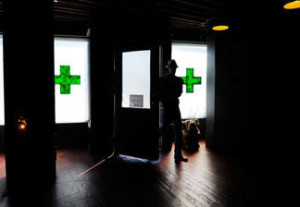 Still, L.A. plans to continue issuing the certificates to businesses that request them, leading critics of the law to charge the city is creating confusion.
Still, L.A. plans to continue issuing the certificates to businesses that request them, leading critics of the law to charge the city is creating confusion.
Opponents said they would continue to fight the law in court.
“We’re just in the beginning of our stages of attack,” said Bruce Margolin, director of the L.A. chapter of NORML. The regulations, he said, create “a kind of monopoly” for the shops that opened before 2007.
For their part, city officials said they plan to close more shops and continue enforcing the rules.
“This won’t be the last time we talk about medical marijuana,” Beck said. “But maybe this is the first time we talk about it where we see a solution.”
 California Marijuana Market Breaking "Marijuana News" from CA
California Marijuana Market Breaking "Marijuana News" from CA

